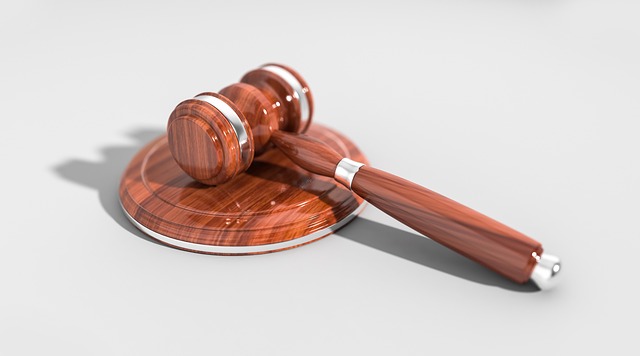RF Regulatory Agency investigations require a nuanced understanding of appeals versus post-conviction relief, both challenging adverse decisions but with distinct scopes. Appeals primarily address procedural errors or reevaluate trial evidence, while post-conviction relief delves into unaddressed issues like ineffective counsel or new evidence. This distinction is vital for fair treatment in white-collar and economic crime cases, leading to potential sentence reductions or charge dismissals. Engaging a specialized RF law attorney is crucial for navigating these processes successfully.
“RF Regulatory Agency investigations can significantly impact businesses and individuals alike, making it crucial to understand the processes involved. This comprehensive guide delves into the intricacies of RF regulatory proceedings, focusing on ‘Understanding RF Regulatory Agency Investigations’. We explore key aspects, including appeal processes and post-conviction relief options, highlighting the critical differences between appeals and post-conviction relief in RF cases. By understanding these distinctions, you can better navigate potential challenges and protect your rights.”
- Understanding RF Regulatory Agency Investigations: A Comprehensive Overview
- The Appeal Process: When and How to Challenge a Decision
- Post-Conviction Relief: Exploring Options After a Final Judgment
- Key Differences: Navigating Appeals vs. Post-Conviction Relief in RF Cases
Understanding RF Regulatory Agency Investigations: A Comprehensive Overview

RF Regulatory Agency Investigations play a pivotal role in upholding communication standards and ensuring compliance with radio frequency (RF) technologies. These investigations are comprehensive inquiries that delve into various aspects of RF devices, networks, and their impact on the broader ecosystem. When a potential violation or non-compliance is suspected, regulatory agencies take on the task of examining equipment, analyzing signals, and scrutinizing operations to verify adherence to established rules and regulations. This process involves meticulous data collection, expert analysis, and a deep understanding of RF engineering principles.
The distinction between an appeal and post-conviction relief is crucial in these investigations. While appeals focus on challenging the outcome of a case, post-conviction relief examines potential errors or new evidence that might alter the verdict. In the context of RF Regulatory Agency Investigations, this translates to reviewing the procedural validity of the investigation, assessing the quality of evidence presented, and considering whether any legal rights were infringed upon during the course of the inquiry, especially for corporate and individual clients across the country facing charges related to white-collar and economic crimes.
The Appeal Process: When and How to Challenge a Decision

When a party is dissatisfied with the outcome of an RF Regulatory Agency investigation, they have the right to appeal. The appeal process provides an opportunity to challenge the agency’s decision and present new evidence or arguments that may have been overlooked during the initial proceeding. It’s crucial to understand the differences between an appeal and post-conviction relief; while both aim to review a previous judgment, their scopes and grounds for review vary significantly.
Appeals are typically limited to reviewing procedural errors, legal questions, or factual inconsistencies in the agency’s decision. On the other hand, post-conviction relief, often available in white collar and economic crimes cases, offers a more comprehensive review of the entire investigative and enforcement process. A successful appeal or post-conviction motion can lead to reversal of the agency’s ruling, dismissal of charges, or even a reduced sentence for the defendant, thereby ensuring fair treatment within the legal framework. For effective navigation of this process, engaging a seasoned white collar defense attorney is highly recommended.
Post-Conviction Relief: Exploring Options After a Final Judgment

After a final judgment in an RF Regulatory Agency investigation, individuals often explore avenues for post-conviction relief, seeking to undo or modify their sentence. This is distinct from the traditional appeal process, which focuses on reviewing procedural errors or reevaluating the evidence during the initial trial. Post-conviction relief, on the other hand, allows defendants to challenge their conviction or sentence based on issues that were not fully addressed at trial, such as ineffective assistance of counsel or newly discovered evidence.
For those convicted of white collar and economic crimes across the country, understanding these options is crucial. Given the complex nature of RF Regulatory Agency investigations, individuals with an unprecedented track record of success in navigating post-conviction relief could offer invaluable insights to those facing similar challenges. This strategy can be a game-changer, potentially leading to reduced sentences or even complete dismissal of charges.
Key Differences: Navigating Appeals vs. Post-Conviction Relief in RF Cases

In RF regulatory agency investigations, understanding the distinctions between appeals and post-conviction relief is paramount for navigating complex legal landscapes. While both avenues aim to challenge or reverse adverse decisions, they operate under different procedural frameworks with unique strengths and limitations. Appeals typically focus on correcting errors in the application of law or procedure during the initial trial or administrative hearing. This process involves submitting written briefs and arguments to a higher authority that reviews the case de novo, meaning it considers the evidence afresh. In contrast, post-conviction relief focuses on excusing previous judgments due to newly discovered evidence, ineffective assistance of counsel, or procedural errors not previously addressed. It provides a second chance for individuals convicted in RF cases to present new arguments or evidence that could have significantly altered their outcomes.
Winning challenging defense verdicts in these contexts demands meticulous attention to detail and strategic legal maneuvering. A general criminal defense attorney specializing in RF law can guide clients through this intricate process, ensuring they present compelling arguments tailored to the specific nature of the case. By differentiating between appeals and post-conviction relief, individuals facing RF regulatory charges can explore the most effective avenues for avoiding indictment or securing a favorable outcome, thereby navigating their legal challenges with enhanced understanding and resilience.
RF Regulatory Agency investigations can have significant impacts on individuals and businesses alike, making it crucial to understand both appeals and post-conviction relief processes. While appeals offer a chance to challenge decisions during the initial stages, post-conviction relief provides an avenue for relief after a final judgment. Understanding these key differences is essential for effectively navigating RF cases. By familiarizing themselves with the specific rules and requirements of each process, individuals can better protect their rights and explore all available options to secure favorable outcomes in their RF regulatory matters.






